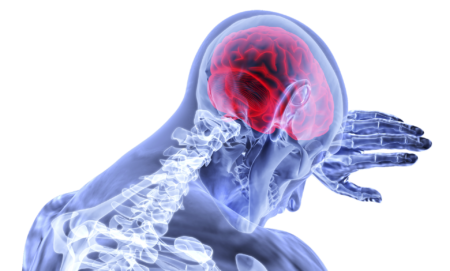What Type of Depression Do You Have?
And “Outside the Box” Solutions
This article is to highlight September as National Suicide Prevention Month
UPDATE Feb 2020
I am updating this article because I was greatly touched by the recent tragic loss of one of my son’s friends. It affected me not only because I saw my son suffer and grieve and because we knew him but because I know this young man dealt with depression and anxiety for many years.
A few years back he told my son during a phone call that he would like to talk to me. I was so grateful that he finally reached this point as I have wanted to support and assist him for years. But often times we have to patiently wait until the person is ready to come to us. This was a huge step for him!
But I made a grave mistake.
I told my son that he can call me anytime. And I waited….and waited…until eventually I got busy, distracted and put him into the back of my mind.
That is where I failed.
Knowing this young man, he already made the first step and I should have picked up the phone and reached out to him.
I know you are thinking, clients should call me first but this was more personal and I knew that him calling his friend’s mom would be awkward and difficult for him. Thus I never had the opportunity to work with him and I can never get this opportunity back and for that I am deeply sad and also angry.
Because of this, I have realized that I still can’t help those who don’t want my help, I don’t give advice if someone hasn’t asked me first…BUT if I sense someone is interested, does want help but just can’t make that next step to make it happen, then I will.
In reality, we all need to do our part. Mental Health issues are not going away. Not just saying “hey, I am here for you” (it is a great first step), but to actually BE THERE for that person!
I think we are making a lot of headway in regards to being more open and talking about mental health but we still have a long way to go….
I think if we all do our part, we can maybe not put an end to mental illness but surely make a huge dent in it!
This is by no means to say that you stop what you are doing. Thus if you are on meds, don’t just stop them! BUT if you are not on meds for depression wouldn’t it make sense to work with someone who can address root causes and to incorporate various modalities BEFORE you go on an anti-depressant which takes 6 weeks to work if it does, comes with a host of side effects, often times the dose will gradually increase, and if you want to get off the drug the withdrawal effects make this very challenging.
Your Unique Depression
Depression does not look the same in everyone nor does it have the same causes! In fact, it often looks different in men versus women and in teens versus adults.
Sadly, you probably have been touched by suicide and loved ones experiencing depression. You may have difficulty understanding why they did it or can’t understand why someone “who had everything going for him or her” ended their life.
Prior to my son’s depression, I am ashamed to admit that I thought taking ones life was a selfish act. It wasn’t until I saw depression for myself and learned more about it via my son’s that I was able to understand what those with depression go through.
Depression isn’t one size fits all. Depression comes in many shapes and forms. Ask anyone who has depression or has dealt with it in the past. They will not all describe it in the same way. Yet, in the way they describe their depression, lies clues to what is going on underneath.
If you have read my prior posts, you know that I don’t believe that depression is a disease but instead a symptom of an underlying root cause. The key is listening to the person, asking the right questions, running the right tests, building the right plan of action, for that person to feel better.
We are all biochemically unique and thus there should not be one pill for the same ill because even depression is not the same for everyone. And for that matter, there should not be one holistic protocol either!
While I address underlying endogenous root causes, I realize that there are many exogenous root causes as well that may need to be addressed. So this article is not meant to minimize outward causes such as bullying, rape, isolation, death of loved one, loss of job and other life experiences. (I do list many options to deal with exogenous depression as well-there is more you can do than you may be aware of)
But,
The causes for one’s depression may be multifactorial, and thus the approach should be also.
Targeted nutrition, an individualized diet and supplement program and addressing underlying endogenous root causes should be part of the plan and often this very important area is overlooked and bypassed.
Here Are Some Examples of How Depression Has Been Described to Me, How It Can Look, How It Can Feel
- Its like a light switch. One moment or one day I feel fine and the next moment/day I don’t
- I have no desire to get out of bed or off the couch, no desire to do anything anymore
- I just feel blah, melancholy all the time
- I don’t care about anything one way or the other, I’ll just go along with what everyone else wants.
- I want to do the things I used to enjoy, I just can’t get motivated
- You would never know I have depression. I go to school, work, sports etc. but when I’m alone that darkness sets in. I’m very good at hiding it from you
- I have a lot of anger, rage, irritability at everyone and everything
- I just want the pain to stop. It’s not pains like joint pain but depression can be painful and you want it to stop
- I’m tearful, cry at anything, I’m overly sensitive, my feelings get hurt easily,
- I’m fatigued all the time and can’t do anything because I’m so tired and exhausted
- On-going low-level depression. I just thought it was the way I am wired.
- Rumination and negative self-talk that just won’t stop especially at bed time when the day quiets down.
- I’m self- critical much of the time, especially around (for example), siblings, co-workers, friends. I feel like I can never measure up to them.
- I use (for example), Sugar, marijuana, alcohol, drugs, caffeine, processed carbs, to feel better, to keep me functioning.
And Here Are SOME Examples of What May Be An ENDOGENOUS Root Cause OR a Contributing Factor in One’s Depression
- Low or high cholesterol
- Hashimoto’s Disease
- Hypothyroidism
- Autoimmune disorders
- Low or high blood sugar
- Standard American diet
- Fast food in the diet
- Systemic inflammation
- Seasonal Affective Disorder
- Candida
- Intestinal Permeability
- SIBO
- IBS
- IBD
- Head Injury (mild as well as more severe concussions)
- Sugar
- Low protein diet, low fat diet, low carb diet
- Diet high in refined carbs
- Toxins/ congested and overburdened liver
- Gluten, dairy
- Food sensitivities
- Food colorings/dyes
- Food additives
- Poor mitochondrial health
- Poor detox pathway functioning
- Poor absorption of nutrients
- Stress, adrenal impact, dysregulated cortisol
- Gut pathogens (there can be many!)
- Low Magnesium
- Low B vitamins
- MTHFR defect
- Pyroluria
- Copper/zinc imbalance
- Past infections
- Medications/medication nutrient depletion
- Low EFA’s
- GERD, acid reflux
- Celiac disease
- Diet high in grains
- Diet low in vegetables and greens
- Disrupted gut microbiome, low in “good bacteria”, high in bad, limited gut diversity
- Parasites
- Lyme Disease (and/or it’s co-infections)
- Heavy metal toxicity
- Histamine intolerance/high histamine/Mast cell activation syndrome
- Mold exposure (chronic), mold sensitivity
- EMF sensitivity (Electromagnetic frequency)
What About Exogenous Root Causes?
Often times depression can be a result of exogenous and endogenous root causes and all should be addressed. AND exogenous root causes can lead to endogenous root causes. So for instance, if you are dealing with on going bullying, the stress that places on the body impact your hormones and can deplete certain nutrients and this can contribute then to depression causes by these hormonal imbalances and nutrient deficiencies and also make it more difficult to cope and deal with the stress of being bullied. Thus, you may need to deal with the outward cause but also address what it happening inside the body.
Besides that, what frustrates me is that the rate of depression is increasing, suicides are increasing and yet we keep doing the same thing over and over-more drugs, more talk therapy.
It is NOT WORKING!
I am not opposed to talk therapy but when people tell me that they have been seeing their therapist for years and years, I have to question is it really effective?
Now they are trying to screen all teens and pre teens in doctor visits by filling out a questionnaire to rule out depression. On the face of it, sure it may seem like a good method to catch depression early on but these questionaires are very subjective and a teens mood can change from one day to the next and thus responses could change from one day to the next.
And in reality, I know I am cynical, but this is not to help rule out depression, it is to direct more kids to big pharma and anti-depressant drugs which we now know are ineffective and the data misleads the public by showing you only what they want to show you.
I cannot say it enough-it isn’t working. The health care system is failing our youth. Parents are doing everything they think is right by putting their kids on a cocktail of meds and taking them to therapy sessions. Has it helped? I am sure it has helped some, but look at how many kids are on these mind altering medications, look at the rate of violence from youth on these meds, look at the rate of depression, anxiety and suicide. More needs to be done-different solutions!
Think Outside The Box!
There are many options beyond just talk therapy and meds which I will list some here for exogenous depression. I encourage you to incorporate one or two of these in to see if it helps you. Addressing depression is more than just pop a pill and sit on a couch and talk about how you feel.
I am not saying that talking to someone is not a good idea because I do think it is but I think more needs to be done for results.
For instance, my son saw a psychologist for a school year and will tell you it was helpful. I used to be a social worker and originally wanted to be a bereavement counselor so I do support seeing someone/talking with someone.
But when someone tells me they have been seeing their therapist for 5, 10, even 20 years and now they are seeing me because they feel only slightly better-that is a concern!
Maybe it is just not the right therapist for you or maybe you do need to try other modalities.
So I want to be clear, I am not bashing counselors, therapists, social workers, psychologists. What I am saying, is I think for many it may be more effective if other modalities are added in and if the therapy is going on for years with little improvement it may be time to reevaluate.
Obviously I am a big proponent of addressing root causes with diet, herbs, supplements and testing but I think there are some other wonderful modalities out there that also should be looked at.
The list below is by no means meant to replace your health care. Rather, share the list and together come up with a few you want to add in
In addition to talk therapy, ask about CBT or EMDR (Cognitive Behavioral Therapy or Eye Movement Densitization and Reprocessing) which is a type of therapy that many therapist, social workers and counselors do.
Aacupuncture
Neuro-sculpting
Neurofeedback
Biofeedback
Tapping (Emotional Freedom Technique)
Emotion Code Technique (this is the one I use with my clients to release trapped/stuck emotions that can lead to physical and emotional issues). Many just do the Emotion Code but I incorporate it in with nutrition therapy.
DNRS (Dynamic Neural Retraining System)
Other Energy work modalities-there are many out there and the best bet is to ask others in your area and hoslitic health professionals in your area as these are not as easy to find with just an online search.
Hypnotherapy
Chiropractor
Meditation
Yoga
Forest Bathing (no phone, no headphones!)
Exercise
Hyperbaric Oxygen Chamber
Infrared Sauna Therapy
Red light Therapy (good for SAD)
Journaling/gratitude journaling
Volunteering! Yes, giving back and helping others can do wonders for your mood!
Human interaction-getting together with friends or joining an interest group (instead of interacting on social media)
Your Depression is Unique and So Are the Remedies
If you know of another helpful holistic modality for mental health, please share with me and I will greatly add to this list!
As you can see, depression can express different from one person to the next and their root causes may be many and varied. So why should the approach to feeling better be the same for each and every person that has depression?
It just does not make any sense to me.
Since you are unique it may take a few attempts to find the right people to help you and the right modalities. For instance, acupuncture may not help you but may be great for your friend, but you find energy healing, addressing trapped emotions more beneficial. For another person, changing the diet may improve depression somewhat and for someone else it may be life changing. It all depends on what is going on with you!
Find the right person who will take the time with you, listen to you and support you!
But realize that is still takes a supportive team approach. One may be more significant for you but typically you will need the support of more than one modality. This doesn’t mean you have to spend all your time seeing health professionals. For instance, for you it could be working with a nutritionist/herbalist, and incorporating forest bathing, meditation with apps and learning how to use Tapping on yourself via You Tube videos.
Depression Is Not An Isolated Health Issue
It is rare that depression happens in isolation.
Are you depressed but everything else is great? No fatigue, headaches, digestive issues, bowel issues, insomnia, joint pain, brain fog or skin issues to name a few? It’s just that many people don’t put all these different random things going on in the body together.
Sometimes I don’t even find out about other health issues until the second or third session. For instance, I had a client that all of sudden became more cognizant of their digestive issues after we worked on mindfulness and finally mentioned it to me. Why didn’t they mention this right away or put this on the intake form? Because they have been dealing with it for so long, it just became normal.
I don’t believe in one pill for every ill, nor do I believe in one supplement or one herb or one diet for everyone who has depression. Depression is one piece to the puzzle. It is not the entire person. The whole person must be considered, not just numbers from a lab or a diagnosis of depression. Hence, the term holistic meaning looking at ALL of YOU!
There is hope, there is a way out.
If you or someone you know, love and care about it suffering, please share this with them.
I do believe that there is a solution, that there is hope but we need to be looking deeper and from a different angle.
Addressing depression also takes time and commitment. You wouldn’t visit the psychologist or psychiatrist just once and expect to feel better. The same applies to nutrition therapy and addressing root causes for depression. It takes time and it is a process. Therefore, it is best to have a support system, just one person, who will help you until you start to feel better and can take more control of your health.
If you know of anyone in need, have them reach out to me. I offer free 15- minute phone consults and we can discuss what is going on and how I can help. I also give pro bono talks on depression and information you won’t hear from your doctor to groups of 10 or more in the CO front range area.
If you sign up for my newsletter you will get a series of posts on depression with information that may shock you






Leave A Comment
You must be logged in to post a comment.